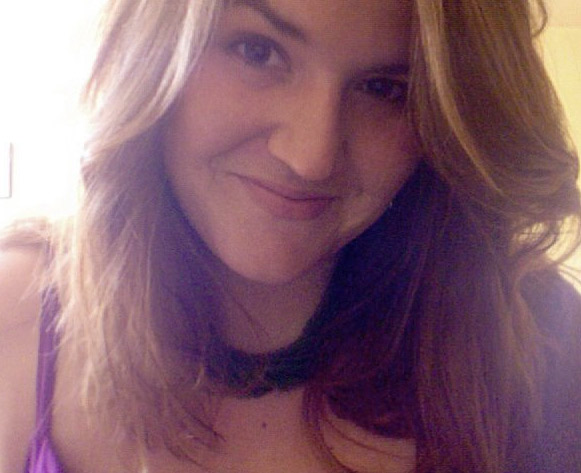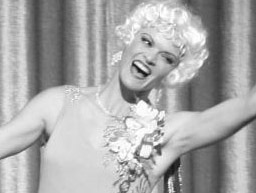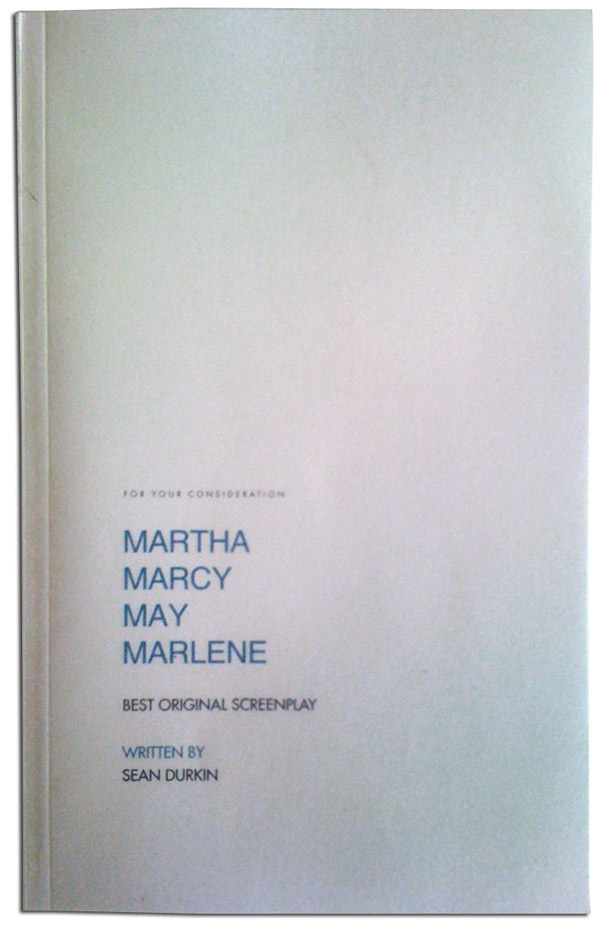Her name is Martha (Elizabeth Olsen) but we first know her as Marcy when she slips quietly out of a crowded farmhouse where women much like her sleep in huddles, like a happy litter of puppies. Her absence is quickly noted by one of the men on the farm named Watts (Brady Corbett) and Marcy hides in the forest while her once slumbering sisters and their men search for her, continually calling out "Marcy May." Once Marcy has reached a neighboring town, she makes a trembling entirely inarticulate phone call. An unidentified woman answers:
Martha, is that you?"
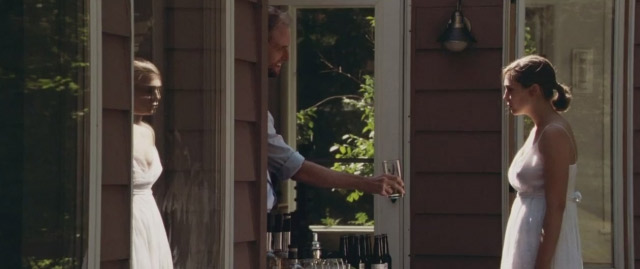 Marcy Doesn't Live Here Anymore
Marcy Doesn't Live Here Anymore
We know instinctively that she is, though we know little else in these first few minutes of writer/director Sean Durkin's feature debut Martha Marcy May Marlene.
The woman on the phone is Martha's estranged sister Lucy (Sarah Paulson) who whisks the young woman away from the mountains to the even more idyllic river side landscape surrounding the far less crowded summer home Lucy shares with her husband Ted (Hugh Dancy). What's comforting to us in their recognizable domesticity, is obviously alien to Martha. The narrative is all friction between the past (Marcy) and present (Martha) and shifts between them sometimes imperceptibly and other times forcefully. The past scenes become in essence an unlocking of the puzzle of Martha's life on the farm with the father/husband figure and shepherd (John Hawkes, Winter's Bone) and his free love flock (to the movie's credit the word "cult" is never uttered). These revelations about Martha's previous life have the pesky tendency to lead the moviegoer to yet more disturbing questions which will probably not have answers.
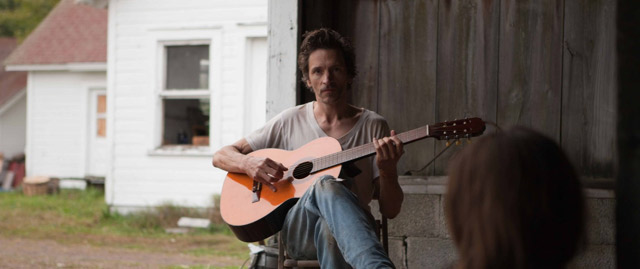 Patrick sings an entranced Marcy a song he wrote for her.
Patrick sings an entranced Marcy a song he wrote for her.
Martha... possibly hits a few of its scariest notes too obviously, but mostly it's a model of restraint and cool control. That's particularly true of Elizabeth Olsen's interiority as the title character. She's trusting that her blurry contradictory identity -- an uncomfortable mix of rigid thinking, moral confusion, and open physicality -- will be enough to sell this lost woman. The fine ensemble cast is also a boon: Hawkes brings his Winter's Bone friction of menacing stranger and filial protector and Corbett and the other cult members are a believable mix of old phantom selves fading into shadows of Patrick. In the present tense scenes, which could almost read as a satire of stories about obnovious in-laws if it had anything like a sense of humor, Paulson and Dancy sketch in a realistic background marriage that's challenged by the needy relative in the foreground. But it's the writer/director that's the movie's true star. Durkin's screenplay's rich subtext that neither Martha nor Marcy are anything like their own woman, no matter the surroundings, shines. He also makes several smart choices in the filmmaking, often eschewing the comfort of close-ups and traditional scoring, to build a quiet cumulative menace. The cinematography in particular by Jody Lee Lipes is just right with its diffuse earthy warmth as seductive blanketing for a story that's anything but.
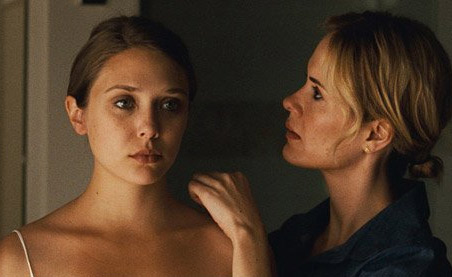 Elizabeth Olsen and Sarah Paulson in "Martha Marcy May Marlene""What's in a name?" the doomed Juliet once asked, trying to argue their meaning of Romeo's away. But her efforts were in vain. None of us initially choose the names we're given but as we move through life, plenty of us make small adjustments, concessions, and shifts along the way to shore up our increasing ownership of self.
Elizabeth Olsen and Sarah Paulson in "Martha Marcy May Marlene""What's in a name?" the doomed Juliet once asked, trying to argue their meaning of Romeo's away. But her efforts were in vain. None of us initially choose the names we're given but as we move through life, plenty of us make small adjustments, concessions, and shifts along the way to shore up our increasing ownership of self.
Before seeing Martha Marcy May Marlene, I liked its "name" a lot. Having now seen the film it's representing, the title vaults over into a thing of pure genius. Film titling is an undersung artform. You could theoretically call this movie about a somewhat nondescript girl haunted by her former life in a cult in New York's Catskills Mountains just about anything. But "Martha Marcy May Marlene" is the perfect, yet far from obvious, choice. It's a riddle, an incantation, a theme. What other name but a series of them could so accurately capture the mystery, simplicity, and loss of self, that's the haunted vacuum center of this stunning debut? A-
Previously on NYFF
The Kid With a Bike races into Kurt's hearts.
George Harrison: Living in the Material World is music to Michael's ears.
A Separation floors Nathaniel. A frontrunner for the Oscar?
The Student makes Nathaniel cram for quizzes that never come.
Carnage raises its voice at Nathaniel but doesn't quite scream.
Miss Bala wins the "must-see crown" from judge Michael.
Tahrir drops Michael right down in the titular Square.
A Dangerous Method excites Kurt... not in that way, perv!
The Loneliest Planet brushes against Nathaniel's skin.
Melancholia shows Michael the end of von Trier's world.
 Tuesday, January 31, 2012 at 10:40AM
Tuesday, January 31, 2012 at 10:40AM  Lisbeth, Katniss, "Mia Vashivovkoska" (thanks Meryl), and Miss Ubiquity
Lisbeth, Katniss, "Mia Vashivovkoska" (thanks Meryl), and Miss Ubiquity




